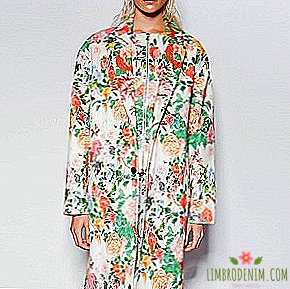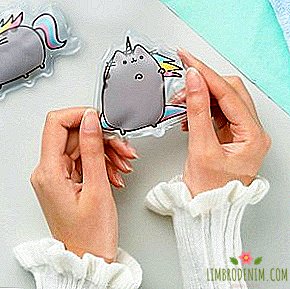Inclusive make-up: Why it is so important to make cosmetics for everyone

margarita virova
In 2017, one of the main trends in the world of cosmetics became inclusive: the focus is on brands that produce a range of tonal tools for all skin colors and highlight the overall friendliness to minorities. We tell where the line lies between the needs of marketing and the real need to create a comfortable space - even if we are talking only about lipsticks and concealers.
The phrase "inclusive makeup" is not irony, but the name of one of the most talked about trends in the world of cosmetics. After the dizzying success of the Fenty Beauty tonal resources (some dark shades were sold to Sephora on the first day), attempts to create a make-up oriented not only to the majority, others turned to others: the enterprising Kylie Jenner presented a concealer in thirty different shades, and British makeup artist Jessica Blecher announced the brand JECCA, whose products are intended for transgender people. About the new approach say from different angles - for example, the entrepreneur from Philadelphia, Camille Bell, created the brand Pound Cake, which offers nude lipstick not only for white-skinned people with pink lips.
It seems that there is no fundamental technical innovation here: the tonal foundations for various types and colors of skin can always be found among professional brands, and in the USA indie brands have been developing for the first year, offering makeup and care only for dark skin and natural African hair. Nevertheless, successful cosmetics that meet such requests, it was necessary to seek out, not sparing money. What Rihanna did was as simple as revolutionary: she released cosmetics for everyone, which you can buy at the nearest Sephora. A flurry of feedback from grateful buyers was not long in coming.
You will surely recall other attempts to highlight the appearance of minorities (and in fact everyone who does not look like a typical model): age and transgender people become the faces of big brands, advertising campaigns are built on feminist and bodipozitivnyh concepts. However, if during the time of the first Dove videos, they were received with unambiguous enthusiasm, then by the current year we have remembered quite a few scandals associated with poorly thought-out actions. An unpleasant story happened to L'Oréal, who immediately fired trans-activist Munro Bergdorf, who had just taken over as brand ambassador, for saying that "all whites are racists." Because of the novelty of the approach and the logical inability to work with the topic, failures happen: you can’t just take and offer a non-standard model to declare the company's changing principles, without having considered all possible gray areas.
Another important point of the conversation is that, as we have already said, the major players in the industry are rather cumbersome - especially when it comes to sales. In order to offer something fundamentally new, there is always the risk of failure, which truly large brands cannot afford - that’s why atypical people continue to advertise the same cosmetics for wealthy white customers. Brands are ready to change names and slogans, but they are not ready to introduce into the assortment rare shades and textures that many people need. Fenty's inspiring good fortune is predetermined by the fact that the Rihanna brand is guided by the wishes of the popular and affordable brands left behind. Sales figures clearly show that there are too many such "invisible" fans of cosmetics to be ignored in the future.
As a good experiment will affect the long-term changes in the industry, it is not too clear yet - but I would like to hope that, following thoughtful means, a comfortable environment will be tightened. The opportunity to buy cosmetics where enough attention is paid to a variety of features and principles has ceased to be optional. Brands too long used aggressive attitudes and speculated on the fears of the audience - but even this approach inevitably exhausts itself. Abandoning the usual general line will not be easy - but exactly so an inclusive turn in marketing can be the biggest event in the cosmetic world. This means that instead of a model that has to be lowered from above, which needs to be matched, we can finally be offered to relax and be ourselves.
cover: Fenty beauty




